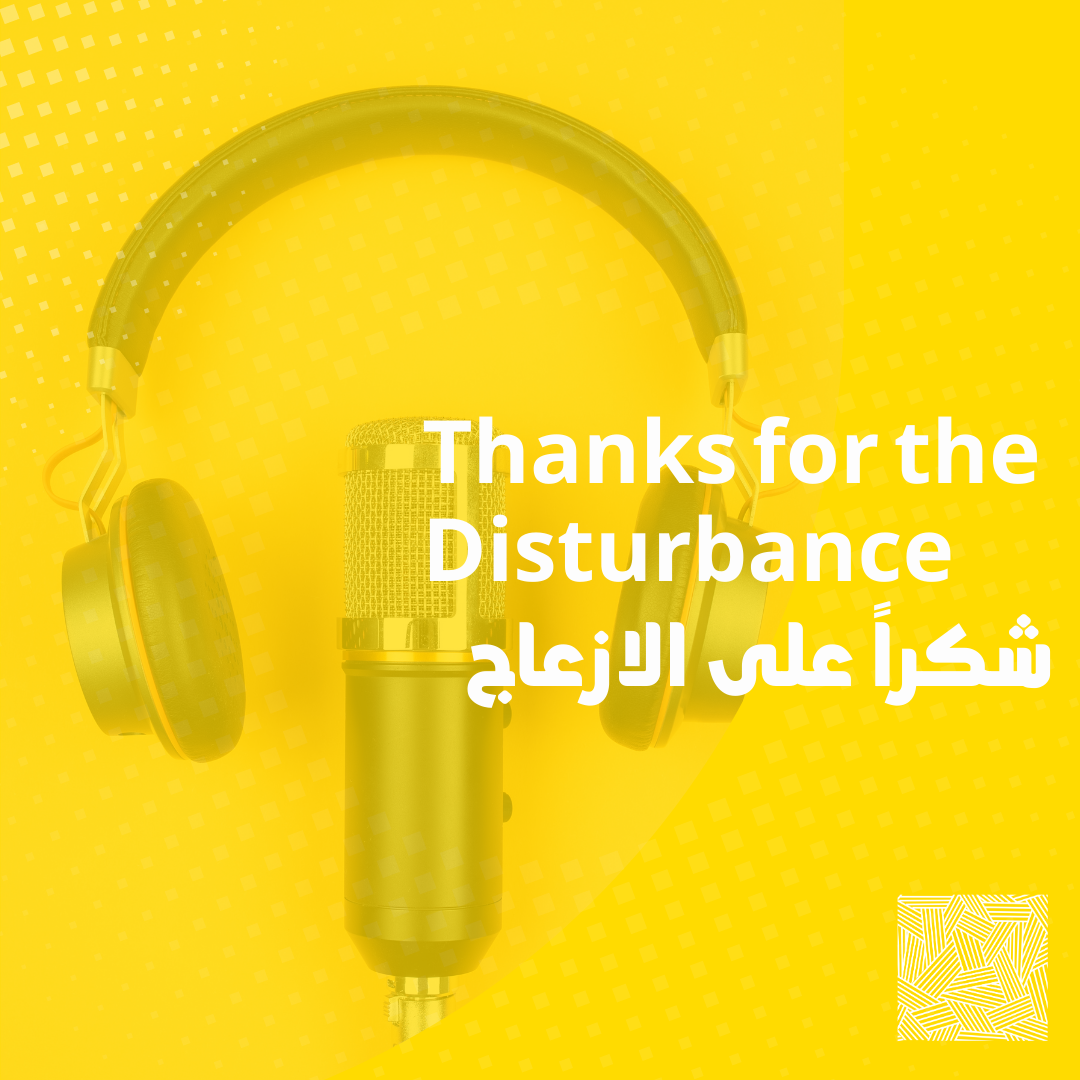
Podcasts have been increasingly popular in the modern day as a means of disseminating information, engaging listeners, and raising awareness about relevant cultural and social issues. A podcast called “شكراً على الازعاج” with guests from Morocco was just released in partnership with our partners in Morocco SimSim-Participation Citoyenne. There has been a remarkably positive response to these podcasts, with many subscribers and viewers showing interest for the topics discussed.
The Power of Podcasting:
Podcasting has gained immense popularity worldwide due to its accessibility and convenience. As it allows individuals to listen to engaging and relevant content on the go, fostering a deeper connection and joint interest between the host and the audience. The audio format enables in-depth discussions, personal narratives, and the exploration of diverse perspectives, making it an ideal medium for addressing social and cultural issues.
The Success of the “شكراً على الازعاج” Podcast Series:
The New podcast series شكراً على الازعاج, featuring guests from Morocco, has garnered significant attention since its launch. With 1.65K subscribers on the “شكراً على الازعاج” YouTube channel and a total of 25,171 views after posting just two episodes, the series has clearly struck a chord with its audience. The first episode, featuring Ahmed Assid, a Moroccan Amazigh activist, garnered substantial organic reach on YouTube, with 22K viewers. This tremendous response highlights the demand for podcasts that delve into important topics and provide a platform for thought-provoking discussions.
Exploring Key Themes:
Ahmed Assid’s episode focused on the importance of humanities in the educational system as a means to adapt to rapid social changes. By shedding light on indigenous rights and promoting a culture of coexistence and tolerance, Assid offered valuable insights into the challenges and opportunities faced by marginalized communities in the MENA region. The inclusion of subtitles in the videos further enhanced accessibility and ensured that the content reached a wider audience.
On July 14th, 2023, the second season of The Disruptors podcast was launched, featuring Hussein Al Waday, a Yemeni human rights activist. With a background in journalism, writing, and advocacy for individual freedoms, Mr. Al Waday led a dedicated exploration of individual freedoms, secularism, the prevalence of violence on social media, freedom of expression, and the state of media in the MENA region. The conversation also delved into women’s rights and the evolving boundaries of freedom of expression, shaped by the expansive influence of social media platforms. This addition further enriches the podcasting landscape, contributing to more engaging content that drives positive change in the MENA region.
The second season of the Disruptors podcast aligns seamlessly with its mission to highlight the stories of change leaders in the MENA region and humanize narratives of successful civil society action on closing civic spaces. Featuring disruptors who challenge the status quo in their pursuit of building just, democratic, and prosperous societies, this season garnered a total 513,820 views. This multifaceted success underscores the podcast’s effectiveness in reaching and engaging diverse audiences, furthering its mission to humanize narratives and support positive societal change in the MENA region.
The positive reception of the “شكراً على الازعاج” podcast series clearly demonstrates that there is a hunger for more podcasts of this nature in the MENA region. Viewers have expressed a strong interest in the subjects covered and have eagerly awaited new episodes. The success of this initiative encourages the MENA Hub, and other organizations to continue using podcasting as a platform for promoting important social and cultural issues.
Podcasting has emerged as a powerful tool for promoting social and cultural issues in the MENA region. The success of “شكراً على الازعاج” podcast series highlights the strong demand for thought-provoking discussions that delve into the challenges faced by marginalized communities. By utilizing podcasting as a means to amplify diverse voices and foster dialogue, we can create a more inclusive and informed society. The positive response to the “شكراً على الازعاج” podcast series is just the beginning, and we can look forward to more engaging content that drives positive change in the MENA region.